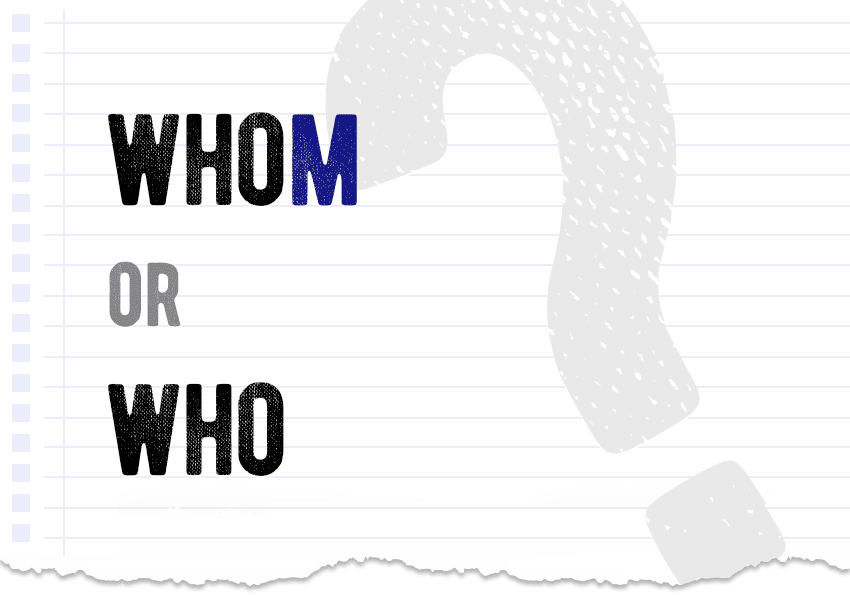Whom or who – what’s the difference?
Whom or who: what is the difference between them? This question pesters many users of English, be they native speakers or language learners. Let us try to dispel this confusion.

Whom or who? The world of who
The pronoun whom has been in decline for about 200 years and is being gradually replaced by who. Yet, whom cannot be utterly forgotten. It is still used in formal contexts, most commonly in writing.
Whom is a derivative of who, and interestingly, who and its family seem to pose a lot of dilemmas for the English speakers. We have already dealt with some of them:
Whom or who – what’s the difference? Grammatically speaking
Who is a subject pronoun, i.e. it presents the doer of an action. Who functions as a relative pronoun, or it appears at the beginning of questions as an interrogative pronoun. Let us look at a literary example:
The person, be it gentleman or lady, who has not pleasure in a good novel, must be intolerably stupid.
Jane Austen, Northanger Abbey, 1817
Whom is an object pronoun, so it means that it refers to a person to whom the action is being done. Similarly to who, we use it in relative clauses, but it also appears in indirect questions and statements. Whom is often accompanied by prepositions (like for, with, to). The prepositions are preferably placed before the pronoun, though sometimes there are left at the end of a sentence.
She wasn’t a person to whom things happen. She did all the happenings.
Muriel Spark, Aiding and Abetting, 2000
Whom or who? Easy way to know the difference
There is an easy trick, which may help you to place your whom/who correctly. If you can replace your pronoun with ‘he’ or ‘she’, you should opt for who. However, if you feel that ‘him’ or ‘her’ would fit better in your context, then whom should be the right choice.


